Related Research Articles
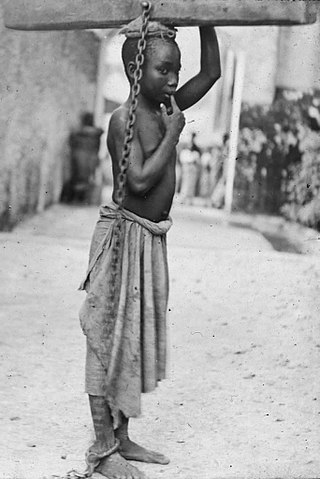
Abolitionism, or the abolitionist movement, is the movement to end slavery and liberate enslaved people around the world.

William Lloyd Garrison was an American abolitionist, journalist, and social reformer. He is best known for his widely read anti-slavery newspaper The Liberator, which Garrison founded in 1831 and published in Boston until slavery in the United States was abolished by the Thirteenth Amendment in 1865.

The American Colonization Society (ACS), initially the Society for the Colonization of Free People of Color of America until 1837, was an American organization founded in 1816 by Robert Finley to encourage and support the migration of freeborn blacks and emancipated slaves to the continent of Africa. It was modeled on an earlier British colonization in Africa, which had sought to resettle London's "black poor".
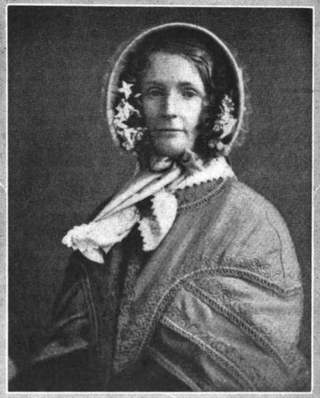
Maria Weston Chapman was an American abolitionist. She was elected to the executive committee of the American Anti-Slavery Society in 1839 and from 1839 until 1842, she served as editor of the anti-slavery journal The Non-Resistant.
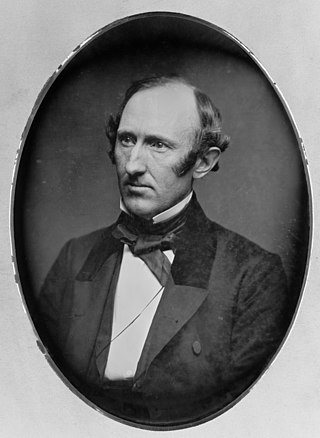
Wendell Phillips was an American abolitionist, advocate for Native Americans, orator, and attorney.

The Liberator (1831–1865) was a weekly abolitionist newspaper, printed and published in Boston by William Lloyd Garrison and, through 1839, by Isaac Knapp. Religious rather than political, it appealed to the moral conscience of its readers, urging them to demand immediate freeing of the slaves ("immediatism"). It also promoted women's rights, an issue that split the American abolitionist movement. Despite its modest circulation of 3,000, it had prominent and influential readers, including all the abolitionist leaders, among them Frederick Douglass, Beriah Green, Arthur and Lewis Tappan, and Alfred Niger. It frequently printed or reprinted letters, reports, sermons, and news stories relating to American slavery, becoming a sort of community bulletin board for the new abolitionist movement that Garrison helped foster.

The North Star was a nineteenth-century anti-slavery newspaper published from the Talman Building in Rochester, New York, by abolitionist Frederick Douglass. The paper commenced publication on December 3, 1847, and ceased as The North Star in June 1851, when it merged with Gerrit Smith's Liberty Party Paper to form Frederick Douglass' Paper. At the time of the Civil War, it was Douglass' Monthly.
Elihu Embree was an abolitionist in Jonesborough, Tennessee, and publisher of Manumission Intelligencier. Founded in 1819, it was the first newspaper in the United States devoted exclusively to the cause of abolishing slavery.

William Cooper Nell was an American abolitionist, journalist, publisher, author, and civil servant of Boston, Massachusetts, who worked for the integration of schools and public facilities in the state. Writing for abolitionist newspapers The Liberator and The North Star, he helped publicize the anti-slavery cause. He published the North Star from 1847 to 18xx, moving temporarily to Rochester, New York.

The Massachusetts General Colored Association was organized in Boston in 1826 to combat slavery and racism. The Association was an early supporter of William Lloyd Garrison. Its influence spread locally and was realized within New England when they joined the New England Anti-Slavery Society in 1833.
The Emancipator (1833–1850) was an American abolitionist newspaper, at first published in New York City and later in Boston. It was founded as the official newspaper of the American Anti-Slavery Society (AASS). From 1840 to 1850, it was published by the Liberty Party; the publication changed names several times as it merged with other abolitionist newspapers in Boston.

The Boston Female Anti-Slavery Society (1833–1840) was an abolitionist, interracial organization in Boston, Massachusetts, in the mid-19th century. "During its brief history ... it orchestrated three national women's conventions, organized a multistate petition campaign, sued southerners who brought slaves into Boston, and sponsored elaborate, profitable fundraisers."
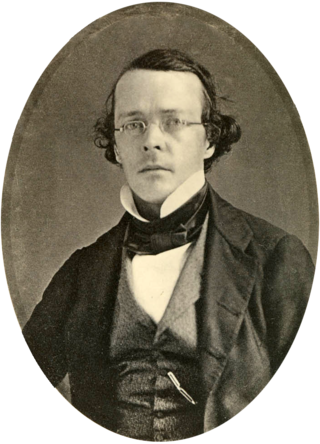
Isaac Knapp was an American abolitionist printer, publisher, and bookseller in Boston, Massachusetts. He is remembered primarily for his collaboration with William Lloyd Garrison in printing and publishing The Liberator newspaper.

Anti-racism encompasses a range of ideas and political actions which are meant to counter racial prejudice, systemic racism, and the oppression of specific racial groups. Anti-racism is usually structured around conscious efforts and deliberate actions which are intended to provide equal opportunities for all people on both an individual and a systemic level. As a philosophy, it can be engaged in by the acknowledgment of personal privileges, confronting acts as well as systems of racial discrimination and/or working to change personal racial biases. Major contemporary anti-racism efforts include the Black Lives Matter (BLM) movement and workplace anti-racism.

Ibram Xolani Kendi is an American author, professor, anti-racist activist, and historian of race and discriminatory policy in America. In July 2020, he founded the Center for Antiracist Research at Boston University where he serves as director.

Ellis Gray Loring was an American attorney, abolitionist, and philanthropist from Boston. He co-founded the New England Anti-Slavery Society, provided legal advice to abolitionists, harbored fugitive slaves in his home, and helped finance the abolitionist newspaper, the Liberator. Loring also mentored Robert Morris, who went on to become one of the first African-American attorneys in the United States.
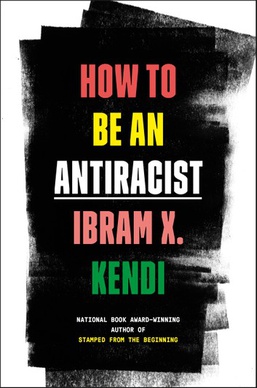
How to Be an Antiracist is a 2019 nonfiction book by American author and historian Ibram X. Kendi, which combines social commentary and memoir. It was published under Random House's One World imprint. The book discusses concepts of racism and Kendi's proposals for anti-racist individual actions and systemic changes.

Bina Venkataraman is an American science policy expert and journalist. She is currently the Editorial Page Editor of The Boston Globe and a fellow at the New America Foundation. She previously served as a senior advisor for Climate Change Innovation under President Barack Obama's administration and advised the President's Council of Advisors on Science and Technology on the Ebola epidemic.
Eunice Russ Ames Davis was a multiracial abolitionist and one of the founding members of the Boston Female Anti-Slavery Society. In 1896, The New York Times named her the "oldest living female abolitionist in the world".
Abolitionist children’s literature includes works written for children by authors committed to the movement to end slavery. It aimed to instill in young readers an understanding of slavery, racial hierarchies, sympathy for the enslaved, and a desire for emancipation. A variety of literary forms were used by abolitionist children’s authors including, short stories, poems, songs, nursery rhymes and dialogues, much of it written by white women. Pamphlets, picture books and periodicals were the primary forms of abolitionist children’s literature, often using Biblical themes to reinforce the wickedness of slavery. Abolitionist children's literature was countered with pro-slavery material aimed at children, which attempting to depict slavery as a noble pursuit, and slaves as stupid and grateful, or evil.
References
- 1 2 Smith, Ben (March 21, 2021). "He Redefined 'Racist.' Now He's Trying to Build a Newsroom". The New York Times . ISSN 0362-4331.
- ↑ Alston, Paris; Siegel, Jeremy (April 29, 2022). "'An urgent moment': Why The Boston Globe and BU resurrected the abolitionist newspaper The Emancipator". Morning Edition. WGBH.
- ↑ Payne, Amber; Douglas, Deborah D. (April 24, 2022). "Editors' Letter: The Return of The Emancipator". BostonGlobe.com .